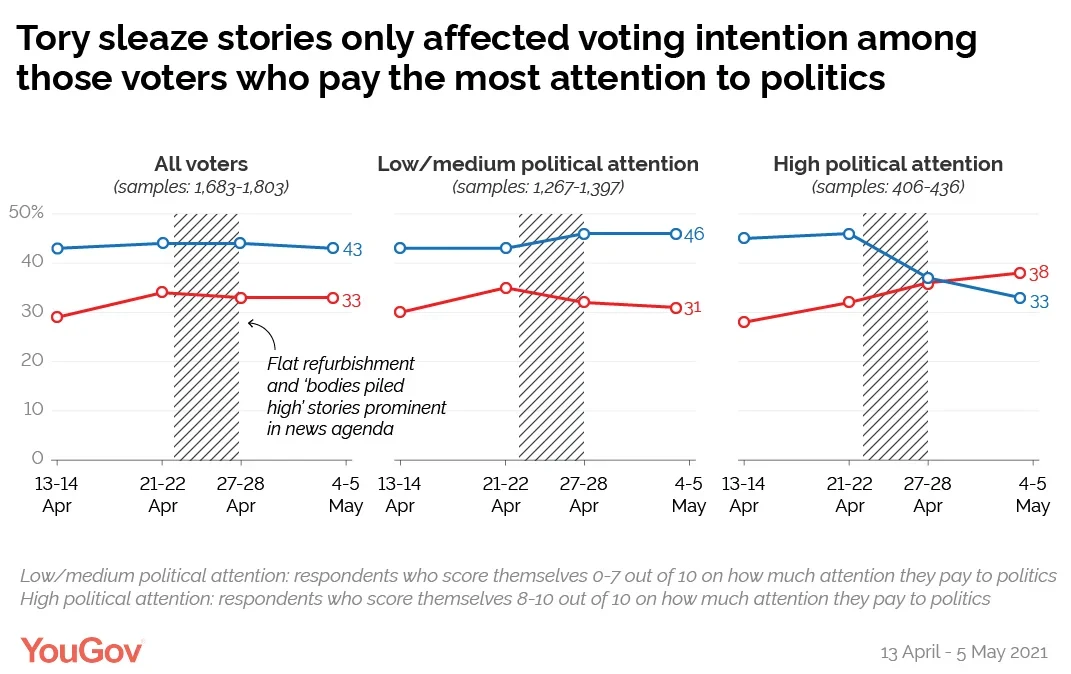Conservative lead remains unchanged amongst those not following politics so closely
With stories of sleaze within the Conservative party dominating news headlines for most of late April, the party’s positive results across England in last Thursday’s local election results may have come as a surprise to many who have been following these stories closely.
Those who have been monitoring YouGov’s polling may have been less shocked, as our latest two voting intention polls – both fielded after broke stories about Boris Johnson’s flat and his alleged remarks on ‘letting the bodies pile high’ – showed no change in the Conservatives’ lead over Labour, with our latest figures putting the party 10 points ahead. The Rallings and Thrasher equivalent national vote share from the local election results estimated that the Conservative lead was 10 points, backing up the suggestion that the sleaze stories have not damaged the Conservative party when it comes to voting intention.
It’s worth noting that this estimate showed a slightly higher lead than the BBC's projected national share (7%), and analysis by YouGov's Patrick English on implied national swing (around 8%), though both these are also largely in line with our national polling.
One group we have seen move away from the Conservatives in the last three weeks, however, is the very politically engaged. As well as weighting by demographic and past voting behaviour to ensure our samples are representative of the overall public, YouGov also weights by how much attention they pay to politics on a scale of 0 to 10. Anyone who self-reports themselves as an 8, 9 or 10 out of 10, we define as having a high political attention. Anyone answering 3-7 is defined as medium attention and 0-2 is low attention.
Amongst those who self-report paying a high level of attention to politics, our poll just two days before the local elections showed a five-point lead for Labour (38% to 33%). This was in stark contrast to the rest of our sample, which showed a 15-point lead for the Conservatives (46% to 31%), averaging out at an overall Conservative 10-point lead.

Looking at the trend over the last month, we also see two completely different stories depending on whether people are engaged in politics or not. There has been a dramatic shift amongst those with a self-reported political attention of 8/10 or higher, with the Conservatives collapsing from a 17-point lead on 13 April to a five-point Labour lead in early May. Amongst those with a political attention of 7/10 or lower, voting intention is virtually unchanged over this time.
YouGov started weighting by political attention after the 2015 general election, when we identified that our samples previously contained too many people highly engaged in politics. Without this adjustment, it is likely our polls leading up to the elections last Thursday would have presented a very different picture of where the country was, rather than our 10-point leads that correlated very closely with the local election results across England.
See the full results from: 13-14 April / 21-22 April / 27-28 April / 4-5 May








